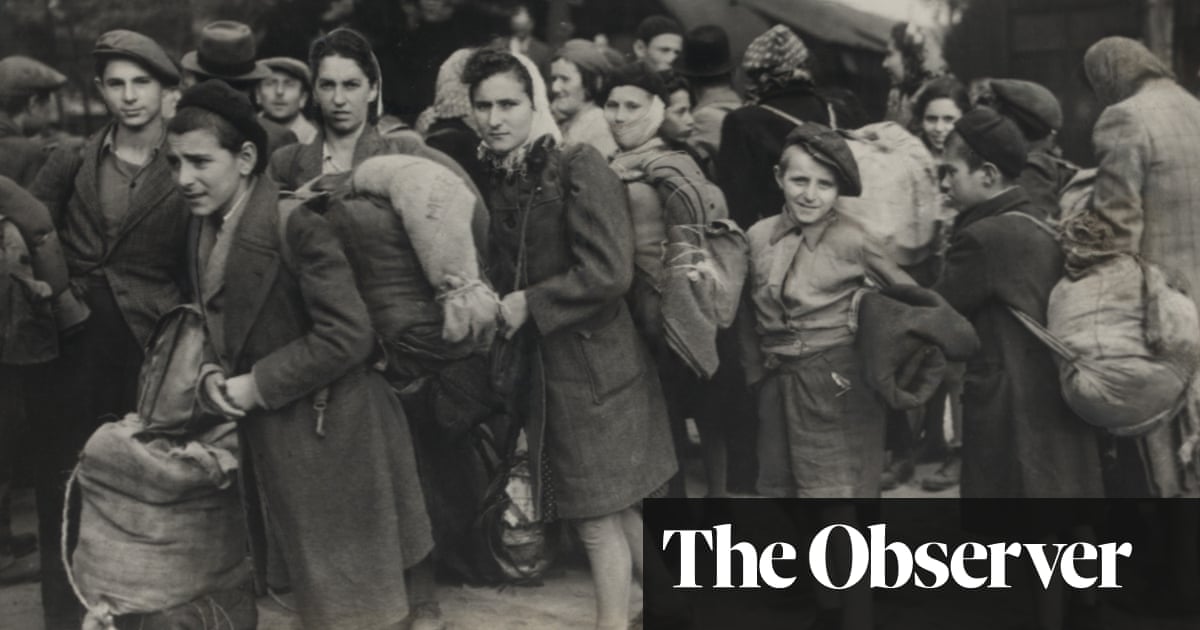
The word Demerara probably means nothing to you, other than being the name of a large-grained golden brown sugar. But Demerara is a place, or it was. Part of what is now called Guyana, Demerara was a British territory rich in sugar plantations. It was one of the most lucrative colonies, owing to the high yield of the land and high productivity of the enslaved people who worked on it, productivity extracted via exceptional brutality. The enslaved outnumbered the white colonists significantly, so it was thought that their treatment needed to be particularly harsh, so as not to encourage rebellion. That came anyway, in 1823. Thomas Harding tells the story of one of the lesser known uprisings of the colonial era, but his book is not just a work of narrative nonfiction, it is an attempt to illustrate that Britain needs to acknowledge the country’s “white debt”, how much of its greatness it owes to the exploitation of enslaved people.
For Harding, it’s personal. His ancestors, through trade in tobacco and other commodities grown on plantations, benefited from slavery. But Harding is also Jewish, and descended from Germans who either perished in the Holocaust or were forced to flee and had their property stolen. Harding received a sum in restitution from the German government, and these reparations compelled him to examine the other part of his family’s legacy. “If I was willing to identify as a victim in my father’s family, to receive reparations from the German government, then surely I had better understand Britain’s role in slavery,” he writes.
Harding understands how much of Britain’s history is skewed towards narratives that portray it as the virtuous protagonist in the account of slavery because the actual protagonists, the enslaved themselves, were never the centre of their own stories. He corrects this by carefully researching the characters of those enslaved on Demerara, and paying attention to how they are described. He replaces “slave” with “enslaved men and women”, as well as putting in quotation marks all markers of ownership – “purchased”, “belonged”, “owned”. Those who participated in the uprising he refers to as “abolitionists” – the term “rebels” implies that they were challenging a legitimate system. The effect is striking, demonstrating that slavery was not just the way things were, but a daily aberration in which one class actively suppressed another. With these small but considered edits, Harding delivers a masterclass in how authors of history can play an active role, for good and for bad, in how these moral questions are framed.
The account of the uprising itself centres on its participants, their shattered bodies and shattered dreams, their domestic lives and stirring hopes for emancipation. As the uprising surges and then is violently suppressed, I found myself asking: why didn’t I know about this? Why are we so familiar (as Harding himself observes) with the drawl of the American slaveowner and the caricatures of slavery in movies such as Django Unchained, but not with the large cast of British characters?
The answer is that it is those characters who got to write British history. And through slavery, they amassed such wealth and influence that, like John Gladstone, the largest slave “owner” in Demerara and a fierce anti-abolitionist, they managed to launch themselves from relatively humble beginnings intothe ranks of landed gentry and political aristocracy.. Gladstone’s fortune from slavery sent his sons to Eton, and one of them was prime minister William Gladstone.
White Debt is written sparingly – there are no sanctimonious lectures on the evils of slavery or chastisements of the British establishment for promoting a false version of history. Harding is almost apologetic in his entreaties to consider reparations, which he believes are due both in financial terms, and as formal acknowledgment of the injustices of slavery. But the book is nonetheless infuriating for its wealth of information that should be common knowledge yet is not, buried under the celebratory propaganda of Britain’s abolition of the transatlantic slave trade. The uprising happened after that abolition, because despite the fact that the British parliament passed a law in 1807 prohibiting the Atlantic slave trade, the shipping and selling of enslaved people between British colonies was still permitted and Demerara became a thriving market.
Harding argues that the Demerara uprising played a larger role than it is given in changing British attitudes towards slavery. But more broadly, the whitewashing of the violent suppression of the uprising at the time, in the British press and parliament, feels sickeningly contemporary. White Debt is full of details that will send a chill down your spine. Michael M’Turk, one of the most brutal slave “owners” in Demerara, who executed one of the abolitionists during the uprisings and strung up his body as a warning to others, cleverly anticipated when the tide against slavery would turn. He presented fake testimonials of his care for the enslaved to Queen Victoria, and managed to secure a knighthood and a place in the history books as someone who was on the right side of history. In his actions, there is no more fitting metaphor for the country as a whole. Britain not only expunged its own record of brutality towards the enslaved, it cast itself as their saviour.












